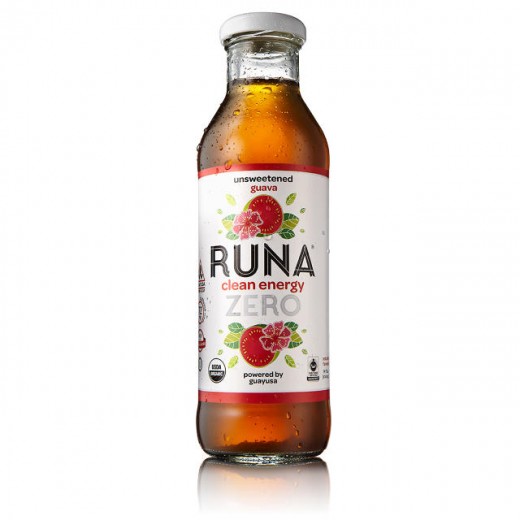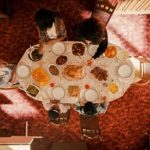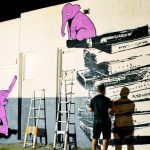How Two Liberal Arts Students Created A Million-Dollar, Rainforest-Saving Tea Company
With support from Channing Tatum and the MacArthur Foundation, RUNA is reimagining what a socially conscious business can be.
In 2010, Brown University student Tyler Gage took a course about the languages and religions of the Amazon that blew his mind. Gage, who had grown up in the comfortable Bay Area suburbs, became enthralled by the rich, complex world of Amazonian tribespeople. Soon, it wasn’t enough for him to just read about these cultures; he wanted to see it all for himself. So, with some guidance from his professor, he packed his bags and moved to the Ecuadorian rainforest for two years.

During this hiatus from college, Gage lived in the jungle among the Shipibo people. He spent his days learning local languages and working with nonprofits, but mostly, he took in the community’s ancient traditions, rituals, and relationship with the earth. “My Shipibo host family was very good to me,” Gage tells me. “The intricacy between their language, cultural heritage, identity, and environment was so fascinating to me. The rainforest is their pharmacy and their supermarket, so I took time to learn about their plants.”
One plant in particular drew him in. He discovered that some tribespeople in the Amazon would get up at 3 a.m. every day to boil clay pots full of a leaf called guayusa, which was said to have mystical powers. The community would sit together before dawn, drink guayusa, interpret dreams, and recount myths. When Gage later did some research about the leaf, he found that it was naturally sweet, had the same caffeine content as coffee, and double the antioxidants as green tea.
Later, when he returned to the U.S. and re-enrolled at Brown, all he could think about was how to help the Amazonian families that had been so hospitable to him. “These people really struggle,” Gage says. “They want to hold on to their land, languages, and traditions, but it is a challenge for them to adapt to modern life. They now live in a world where cash has value and they need money to send their kids to school.” One particularly heartbreaking moment drove this reality home: he remembers watching his host family cut down a 100-year-old tree to sell for the equivalent of $2, when the day before, they had told him that their grandfather’s spirit lived in it.
Gage began to hatch a plan. Americans, he thought, would love the properties of guayusa; they would see it as a healthy alternative to espresso shots or Red Bull. With the help of his close friend and classmate Dan MacCombie, he developed a business idea that involved supporting Amazonian farmers by selling guayusa tea to the American market. In their final semester of university, Gage and MacCombie took a business class to learn how to transform their dream into a workable business plan. Several months later, they were ready to launch RUNA, a beverage brand that means “fully alive” in the Kichwa language of the Amazon.
“At RUNA, we’re asking ourselves a basic economic question: How do we create new value for these traditions, people and the rainforest?” says Gage. “Local governments are not placing value on Amazonian knowledge and cultures; they are deforesting the land to grow palm oil. I wanted to prove that we can manage land more profitably using sustainable farming practices and direct trade relationships with products like guayusa.”
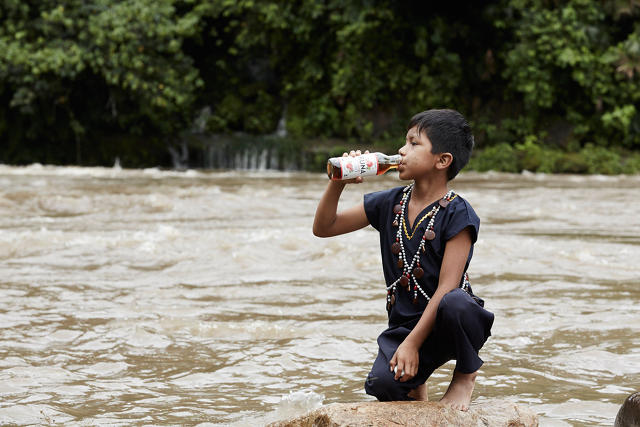
Running A Company Like Liberal Arts Students
It was an ambitious goal, particularly since Gage and MacCombie had no business experience, apart from that single college class. They had spent their entire education deeply embedded in the liberal arts, learning languages and reading about cultures. But they decided that this training could be an asset to them. “We made a decision to run the business as liberal arts students,” Gage says. “We didn’t know the first thing about managing exports or the supply chain in the Amazon. But we are trained to ask questions, think critically about issues at hand, synthesize a lot of information, and make decisions. So that’s what we did.”
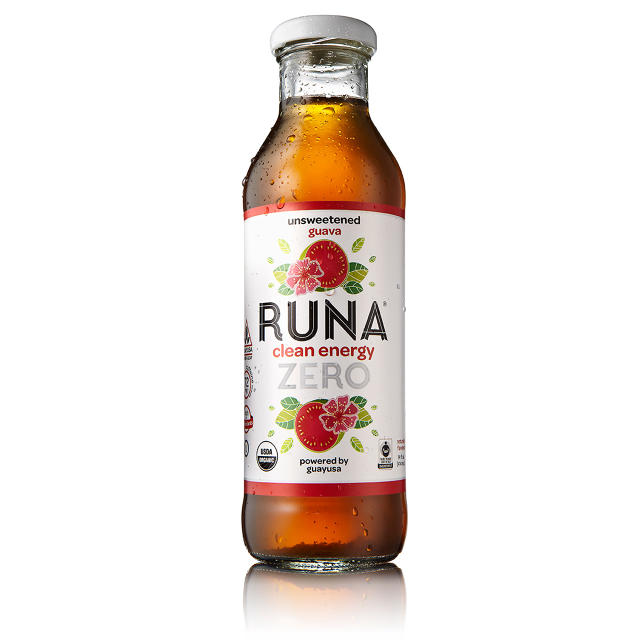
Gage admits that their naïveté helped. Had they known more about startups, they might have been overwhelmed by the obstacles and challenges that lay in their path. But for these liberal arts students immersed in theories and philosophies, ignorance was bliss. They entered their business plan into several contests and ended up coming in first place at both Rhode Island’s and Brown’s business plan competitions. It turned out that others in the business community believed that if the cofounders could turn RUNA into a household name, like Honest Tea or Red Bull, they had the potential to help many people and prevent the deforestation of the rainforest.
With this boost of confidence, Gage and MacCombie began to hustle. Following their student instincts, their first step was to find experienced business leaders who could teach them as much as possible about starting a beverage company. They relied on their business professor’s connections in the consumer packaged goods industry and leveraged their alumni network to find executives who worked at beverage corporations. They also went to trade shows and networking events. These connections multiplied and over time, they secured meetings with top dogs from an impressive range of businesses: Coca-Cola, Pepsico, Vitacoco, Nestle Waters, Zico, and David’s Tea, among many others.
Gage believes that some of these executives were willing to speak to them because they seemed like such oddballs. “People were intrigued by our story,” Gage says. “They thought it was interesting that this Brown kid had moved to the jungle. They were willing to entertain the absurdity of us.”
Gage also believed that he could deploy his liberal arts training in interesting ways during this process. For instance, as a linguist, he saw his job as translating the complex, idealistic philosophy of the company into terms that would resonate with his business audience. It was not that dissimilar to translating between English and Amazon dialects. He also believed that storytelling was key to selling this idea. Gage wasn’t just tasked with listing facts about the business to new audiences; he needed to convey information in a compelling, persuasive narrative.
In some instances, the product appeared to speak for itself. Gage and MacCombie would often bring guayusa tea leaves to brew up at meetings. The beverage executives who consumed it believed that it had potential. After all, given that energy drinks and tea are among the fastest growing segments in the beverage industry, it seemed like there was room for RUNA in the marketplace.
Soon, the cofounders had a list of beverage-industry veterans who were not only willing to advise them but also invest in the business. This included the marketing chiefs of Vitaminwater and Vita Coco, and Tim Halloran, who had led Coca-Cola’s marketing efforts for 10 years. The president of the World Wildlife Fund invested in an effort to support RUNA’s environmental mission. The actor Channing Tatum, who is an advocate for preserving indigenous cultures, was willing to invest because of RUNA’s commitment to upholding local cultures and traditions.
Over the last three years, RUNA has developed a wide product range, from bottled teas to tea bag and loose leaf lines to energy drinks. With a team of 22 staff in the U.S. and 44 in South America, the company distributes millions of products a year through Whole Foods, Safeway, Vitamin Shoppe, and other retailers, and is expected to bring in $10 million in revenues this year. What is more exciting, at least to Gage, is the impact that the brand is now having on families in Ecuador. RUNA exports 10,000 pounds per month of guayusa, which translates to over $200,000 a year in direct income to 2,000 farming families. The company has already invested $70,000 in a social fund that is managed by the farmers. The reforestation efforts are also going well, with more than 500 hectares to date planted with diverse, organic certified forest gardens.
Reimagining the Social Enterprise Model
Gage and MacCombie have worked hard to turn RUNA into a well-run business that is on track to be profitable in the next few years. But they have also devoted a lot of energy to innovating a model that would allow the company to stay grounded in its social objectives.
According to Gage, consumers have come to expect brands to include an element of corporate social responsibility in their business practices, but as a result, the idea of social consciousness has been watered down. “Companies sometimes add on a layer of charitable giving or have a charitable foundation that is completely removed from the actual operation of the business,” Gage says. From the beginning, Gage knew that this is not what he wanted for RUNA. “Our way of making an impact is by doing business,” Gage explains. “Any consumer who buys a bottle of RUNA at Whole Foods or Safeway is supporting an indigenous family who grew the leaves and earned a high price to cultivate a native plant that is valued in their culture.”
To guard against the possibility that the business objectives could ever overshadow the social good, RUNA has created an independently funded foundation to keep the company honest. “We designed the RUNA Foundation to fight against the company,” Gage explains. “It sits on the farmers’ side of the table.” In some ways, this separation between the business and foundation is liberating, because it allows the company to focus on its immediate goals of making a profit and growing. Meanwhile, the foundation, which is supported by organizations like the MacArthur foundation and USAID, is not obligated to the company or shareholders, so it can focus entirely on the farmers’ quality of life.
“As a business, we need to think of the supply chain first,” Gage explains. “I need to make sure I have enough guayusa to sell in my products. But we want the foundation to push us to a whole other level. The foundation is an anchor point—a locus of impact—that focuses on long-term sustainability. It’s a nice harmony.”
While Gage and MacCombie are working hard to stick to their original social objectives, they haven’t felt the need to lead with this message as they sell products. They’ve struggled to summarize the complexity of their social model in terms that are concise and easy for consumers to digest. “When we try to explain it, it gets pithy and diluted,” Gage says. “It’s almost worse to just say that RUNA is organic, fair-trade tea. While this is true, it also reduces the innovation, impact, and specialness of what we do.”
Amid all the noise in the marketplace, with brands boasting about their social impact, Gage and MacCombie have chosen to stay out of the fray entirely. Instead, RUNA focuses on creating a product that consumers want to buy. They tell their story on their website and social media platforms, but ultimately, it doesn’t really matter whether a consumer is fully aware of the social good happening behind the scenes.
“We often joke that it if we help a jock drinking our energy drink before a workout and someone who buys our loose leaf tea to feel connected with the rainforest and the people in the Amazon, the impact they are having on the farmer’s is exactly the same,” Gage says. “If people love the product, we can drive impact.”
Fast Company , Read Full Story
(203)

